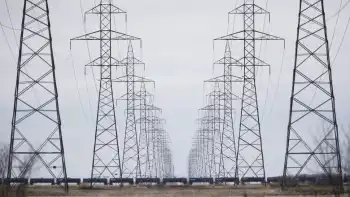Michigan Attorney General Mike Cox Opposes Electric Rate Increases
LANSING, MICHIGAN - Michigan Attorney General Mike Cox announced that his office is challenging more than $21 million in electric rate increases and $100 million in forced ratepayer subsidies resulting from recent action by the Michigan Public Service Commission.
"I am committed to protecting Michigan ratepayers against unreasonable increases in energy costs," Cox said. "People in Michigan work too hard to have these unfair, skyrocketing electricity costs imposed on them. I will do everything I can to keep these costs reasonably low."
Cox's office has already filed a March appeal in the Michigan Court of Appeals opposing two final Commission orders issued January 25, 2005. In addition, his office will testify against two proposed rate increases for Consumers Energy customers when they are taken up by the Commission later this year.
The two orders issued by the Public Service Commission allow Consumers Energy, its affiliate company Midland Cogeneration Venture (MCV), and for- profit energy suppliers to force ratepayers into paying for the companies' supposedly voluntary Resource Conservation Plan.
"With the threat of double-digit rate increase still hanging over their heads, ratepayers should not be shouldered with more than $21 million in hidden rate increases and $100 million in forced subsidies," Cox said. "Michigan ratepayers should not be misled into absorbing subsidy costs that the free market should bear."
In its first order, U-14031, the Commission approved a Consumers Energy plan creating a $5 million per-year subsidy for buying electricity from for- profit renewable energy suppliers, such as wind turbine and landfill gas projects. The Commission also approved the company's plan to substitute higher-cost replacement energy for energy delivered by sister company MCV.
"I support the research and development of renewable forms of energy and I support consumers who want to voluntarily contribute to developing green power," Cox said. "What I don't support is forcing unsuspecting ratepayers to foot the bill involuntarily for private sector for-profit activities."
Cox also objects to the Commission's approval in U-14031 of cutbacks in production at MCV's Midland plant that will save the company $139 million, while forcing ratepayers to pay more than $21 million for higher-cost replacement energy. Particularly, Cox objected to the methods in which the $139 million is allocated.
In the order, Cox explained, the Commission permitted Consumers Energy to reduce the amount of power it buys from MCV, which was selling the power at a loss. As a result, Consumers Energy has to buy more expensive replacement energy on the open market. Specifically, Consumers Energy is able to recover those replacement costs by charging ratepayers. Ratepayers will receive offsetting credits, but due to the use of two different accounting systems - average costs for the charge and incremental costs for the credits - ratepayers will see their bills increase instead of decrease, as promised.
"The rate reduction that the Public Service Commission promised ratepayers when it approved Consumers Energy's plan in January is an illusion," Cox said. "In fact, the hidden costs are projected to increase ratepayers electricity bills by $21 million."
In its second January 25, 2005 order, U-13843, the Commission required Consumers Energy to sign 20-year contracts with for-profit renewable energy suppliers at twice the price of available, alternative sources of electricity. At a minimum, Cox argues, this order will cost ratepayers $100 million over the next 20 years.
The cases continue Attorney General Cox's aggressive approach to challenging utility rate increases on behalf of Michigan consumers and businesses. In 2004, Cox's Special Litigation Division lowered utility rates for the citizens of Michigan by more than $400 million.
Related News

German coalition backs electricity subsidy for industries
BERLIN - Germany’s three-party coalition is debating whether electricity prices for energy-intensive industries should be subsidised to prevent companies from moving production abroad.
Calls to reduce the electricity bill for big industrial producers are being made by leading politicians, who, like others in Germany, fear the country could lose its position as an industrial powerhouse as it gradually shifts away from fossil fuel-based production.
“It is in the interest of all of us that this strong industry, which we undoubtedly have in Germany, is preserved,” Lars Klingbeil, head of Germany’s leading government party SPD (S&D), told Bayrischer Rundfunk on Wednesday.
To achieve this,…




